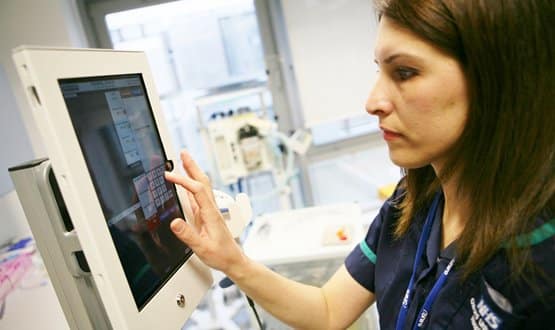`Ground-breaking’ deal in Oxford sees NHS products commercialised

The University of Oxford and Oxford University Hospitals NHS Foundation Trust have signed a strategic research agreement with Drayson Technologies which will see digital health products commercialised by the start-up.
Having only been established in 2015, Drayson Technologies, founded by Paul Drayson, a former Labour government science minister, closed £15 million in its latest funding round (Series C funding).
A Drayson Technologies spokesman said the deal is ground-breaking as royalties will be fed back into the NHS from the products commercialised; bringing benefits back to patients in the NHS.
The university and the trust, which is a global digital exemplar, will receive in aggregate £5 million worth of equity in Drayson Technologies as part of the Series C funding round.
Both organisations developed and trialled the technologies in the Oxford Biomedical Research Centre funded by the National Institute for Health Research.
Underpinned by the university’s academic research excellence, engineering expertise and the trust’s clinical validation, the agreement will create a pathway for the production of world-class digital health products, commercialised globally by Drayson Technologies, the spokesman said.
Oxford University trust’s chief information officer, Peter Knight said working with Drayson Technologies “will allow us to bring technologies that we invent and develop together to our patients faster.”
“We will also be able to reinvest royalties from the results of research and development created in the partnership of the university and NHS back into our services for the benefit of our patients.”

Drayson has raised more than £41 million to date and this most recent round of investment will enable it to continue its mission to understand the health of an individual in the context of their environment.
It will allow them to generate actionable information and discoveries that improve health and reduce healthcare costs.
Drayson said chronic disease affects the lives of millions of people as well as accounting for around 70% of NHS costs.
“Digital health technologies offer the potential to make a huge difference for these people and save money for the NHS.”
“This highly innovative partnership will ensure that there is a pathway from invention to commercialisation for digital health products created in Oxford that will deliver benefits to patients and reinvestment back into the University and the NHS trust.”
Lionel Tarassenko, head of the department of engineering science, whose research group developed the digital health products in partnership with the Oxford trust, said: “Our work with wearables, smart devices, and machine learning algorithms has enabled the delivery of real-time, personalised healthcare to patients where it is most needed, from the hospital to the home.”
He added that the partnership with Drayson Technologies gives them a unique opportunity to accelerate the development and deployment of these digital health products.
[themify_box icon=”info” color=”gray”]
About the partnership:
- Drayson Technologies deal will deliver a double benefit to the NHS from NHS-funded research
- Five-year deal in Oxford will see royalties flowing back to the University and NHS Trust from digital health products commercialised by the company
- Company completes Series C funding round to support strategic deal with Oxford led by existing investor Woodford Investment Management
[/themify_box]





1 Comments
This is good news.
If the NHS worked more with commercial organisations like Google I am sure IT could become far more efficient and save a load of taxpayers cash e.g. Google translation services (one of Google’s message is “The need for information crosses all borders”, language is an issue within ourNHS, translation needs to happen as efficiently as possible).
Comments are closed.